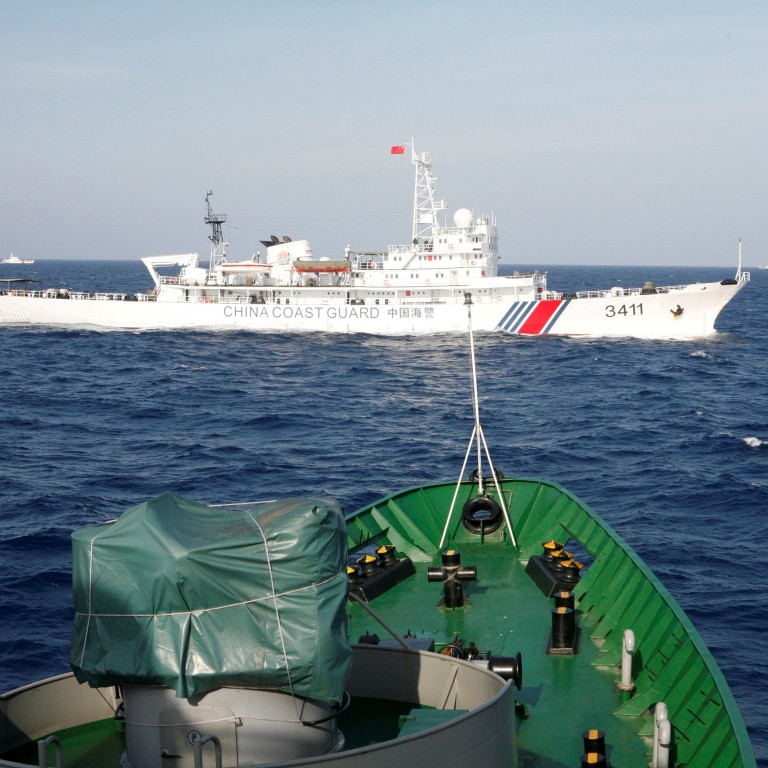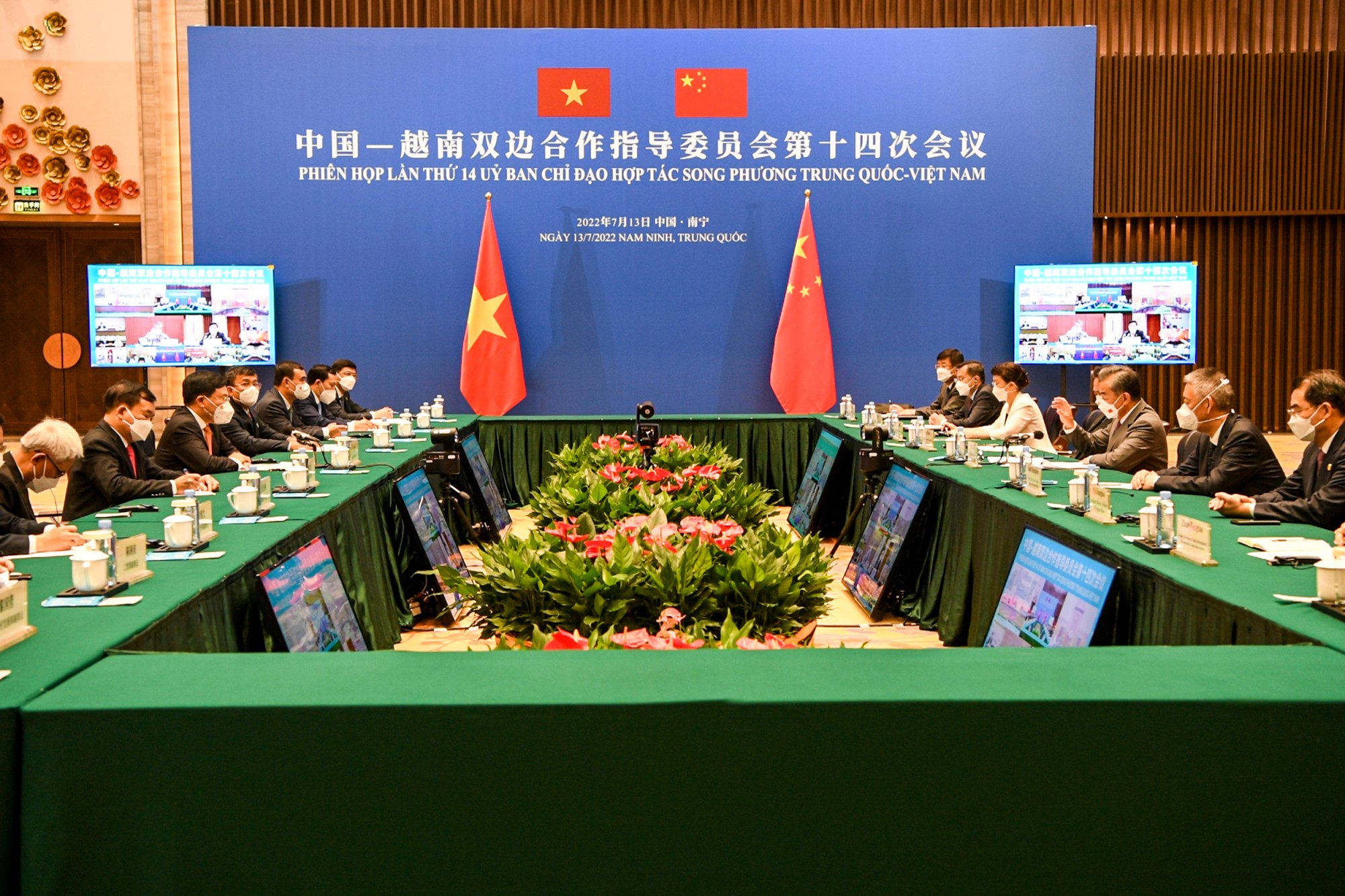
Vietnam agrees on fishing hotline with China but pace of trade ‘slow’
- High-level talks establish cooperation on South China Sea issues but Hanoi vents frustration at progress of economic ties
- Vietnamese Deputy Prime Minister Pham Binh Minh calls on Beijing to create favourable customs conditions and reduce Covid-19 quarantine
In high-level talks on Wednesday, Chinese Foreign Minister Wang Yi and Vietnam’s Deputy Prime Minister Pham Binh Minh vowed to properly handle their maritime disputes over the South China Sea and further boost bilateral ties.

“Facing the risks and challenges on the way forward and the arduous reform and development tasks, China and Vietnam must inherit special friendship, consolidate unity and mutual trust and deepen mutually beneficial cooperation,” Wang said, according to a Chinese foreign ministry statement.
The Vietnam News Agency (VNA) reported that during the meeting in Guanxi, southern China, Pham agreed that both sides have maintained steady cooperation over the past months.
But it also said there were “frank discussions about some problems in bilateral cooperation”, specifically trade imbalances and obstacles to cross-border trade from Vietnam to China.
“The progress of opening up Chinese markets to Vietnamese agricultural products and some economic cooperation projects, and development aid projects are slow. Travelling between the two countries is still difficult because of the Covid-19 pandemic,” the news agency said.
Pham called on China to create favourable customs conditions at border gates, while setting up “green lines” to reduce quarantine times and speed up the clearance of goods.
He also asked China to import more Vietnamese fruit and to back the opening of a Vietnam trade promotion office in Chengdu, Sichuan province. The VNA report said Hanoi is ready to open and upgrade border gates to meet the demands of both countries.
China is facing a heightened need to maintain ties with its neighbours as the United States builds up its regional alliance network, seen by Beijing as containment.
Before his talks with Pham, Wang made a 10-day trip to Myanmar, Thailand, the Philippines, Indonesia and Malaysia and pledged more cooperation with the region.
But he also cautioned the Association of Southeast Asian Nations members against being used as “chess pieces in major-power rivalry, and from coercion by hegemony and bullying”.
Chinese experts warn against US-led strategy targeting Beijing in South China Sea
Relations between China and Southeast Asia – particularly Vietnam and the Philippines – are beset by the South China Sea disputes. Beijing claims sovereignty over almost the entire resource-rich waterway and over the years has built artificial islands that can hold military facilities, triggering suspicions among its neighbours.
In the meeting with Wang, Pham said neither China nor Vietnam should complicate the South China Sea disputes, as they reached agreement to cooperate in search and rescue at sea missions, as well as to establish a hotline for unexpected fishing activities “at an early date”.
Fishing is one of the contentious issues faced by the two countries in the South China Sea.
US plans to battle illegal fishing in Pacific, with an eye on China’s fleet
Dark ships are vessels that turn off their AIS transponders to hide their location and identities, usually to conceal activities such as illegal fishing or unauthorised entry into another country’s waters.
China’s fishing fleet, which includes privately owned vessels and commercial trawlers from state-owned companies, has been travelling further afield, seeking new fishing grounds in Southeast Asia, West Africa, South America and in the South Pacific as a result of depleted fish stocks in Chinese waters.
But Chinese fleets have often been accused of defying international law to carry out illegal, unreported and unregulated fishing, using prohibited equipment, capturing protected species such as turtles and seals, and abusing migrant crews, according to a report by the Environmental Justice Foundation.

